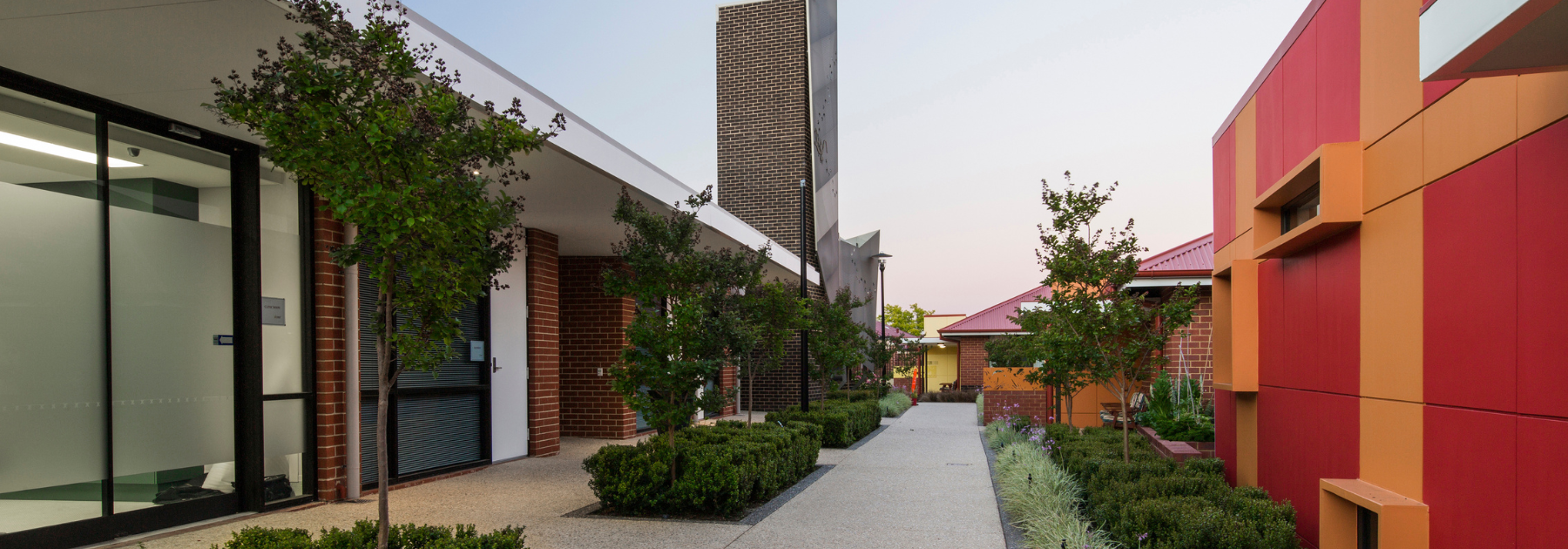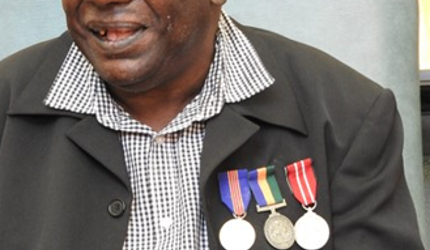
Learning to live again
Brain injury rehabilitation can be long and challenging, but getting the right intervention and the right support – over the right time period – can be life-changing. Since 1991, Brightwater has been an innovator in the area of acquired brain injury (ABI), assisting people with an ABI to find meaning and independence.
The Brightwater Oats Street program takes advantage of the brain’s capacity for change. This one-of-a-kind program helps clients achieve remarkable improvement in physical, social and cognitive function.
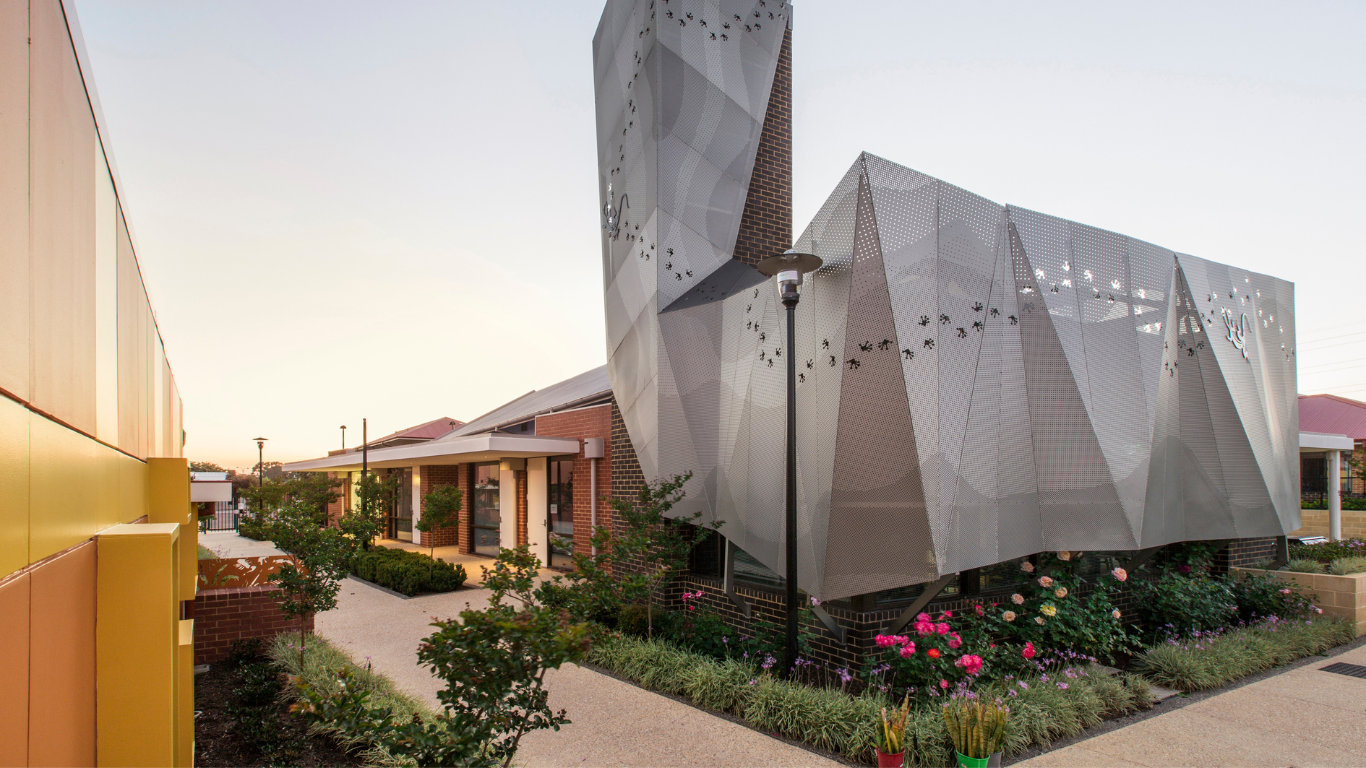
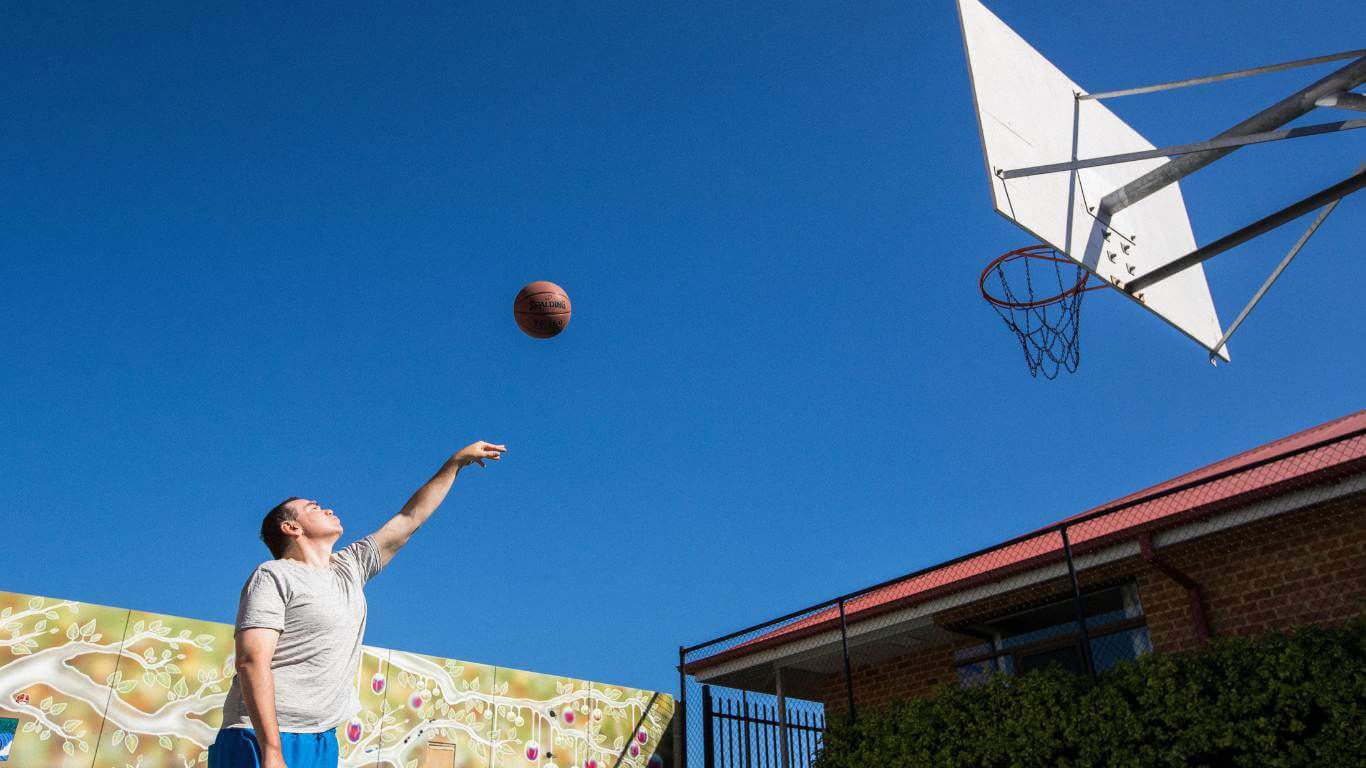
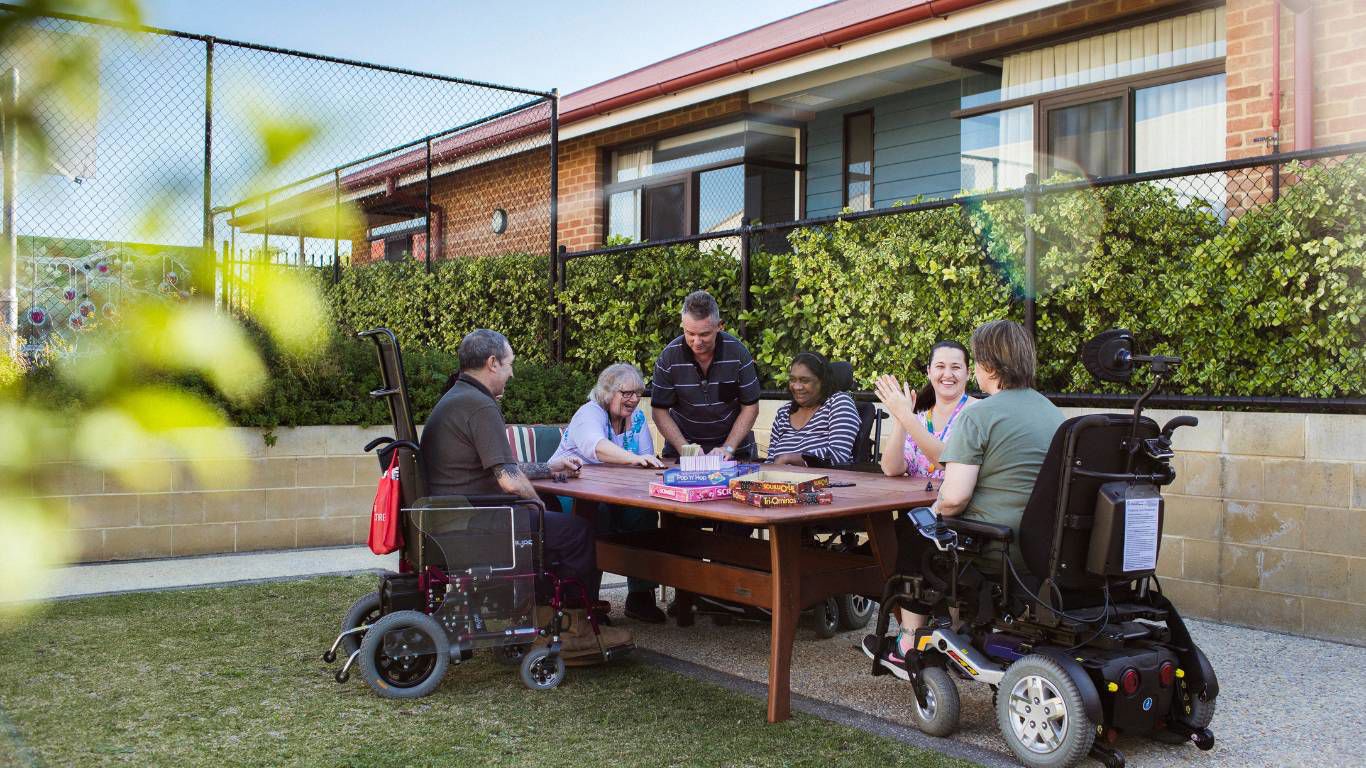
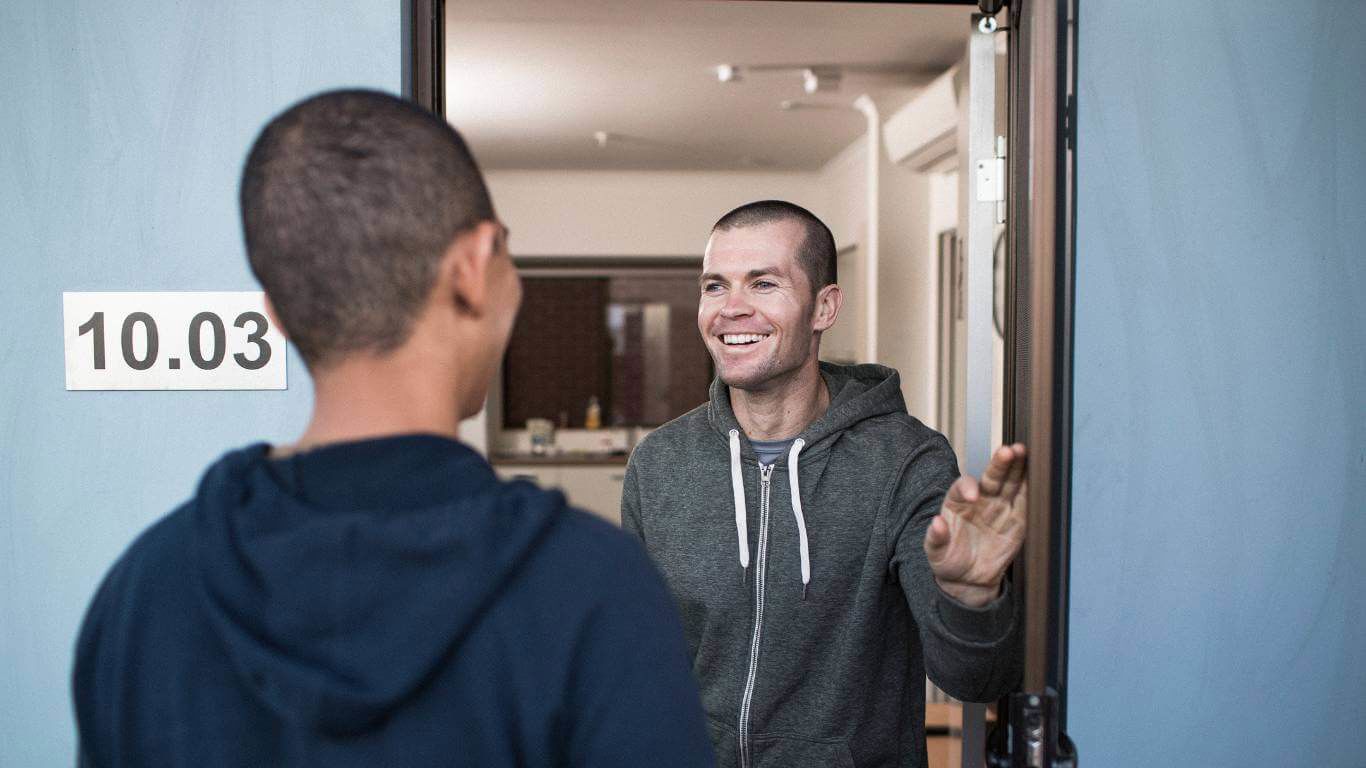
About Oats Street
The Oats Street rehabilitation program is a purpose-built centre located in East Vic Park. It uses a careful combination of environmental design, personal motivation and longer-than-normal therapeutic timeframes. The immersive program is supported by rigorous clinical research and typically lasts from 12 months to 24 months.
Brightwater puts the client at the centre, with support from family and our interdisciplinary team. Everyone works towards goals aligning with the client’s interests and capabilities. Graduation from the program is based on an assessment of the client’s skills and capacity in eight areas:
- Mobility in the house
- Mobility in the community
- Household tasks
- Self-care
- Self-management
- Community involvement
- Problem-solving and contingency planning
- Independent living.
Oats Street at a glance
We work with people to rebuild skills in a home-based setting. Our focus is on life skills like shopping, cooking, self-care, household chores, budgeting, and even driving for some people.
- Capacity for up to 43 live-in residents
- Community-based support for up to 10 clients – who live in their own homes
- Eight shared houses
- Eight independent living units
- Shared facilities including an education centre, gym, basketball court and gardens
- 65 full- and part-time staff comprising occupational therapists, physiotherapists, speech pathologists, a clinical psychologist, social workers, nurses, and support staff.
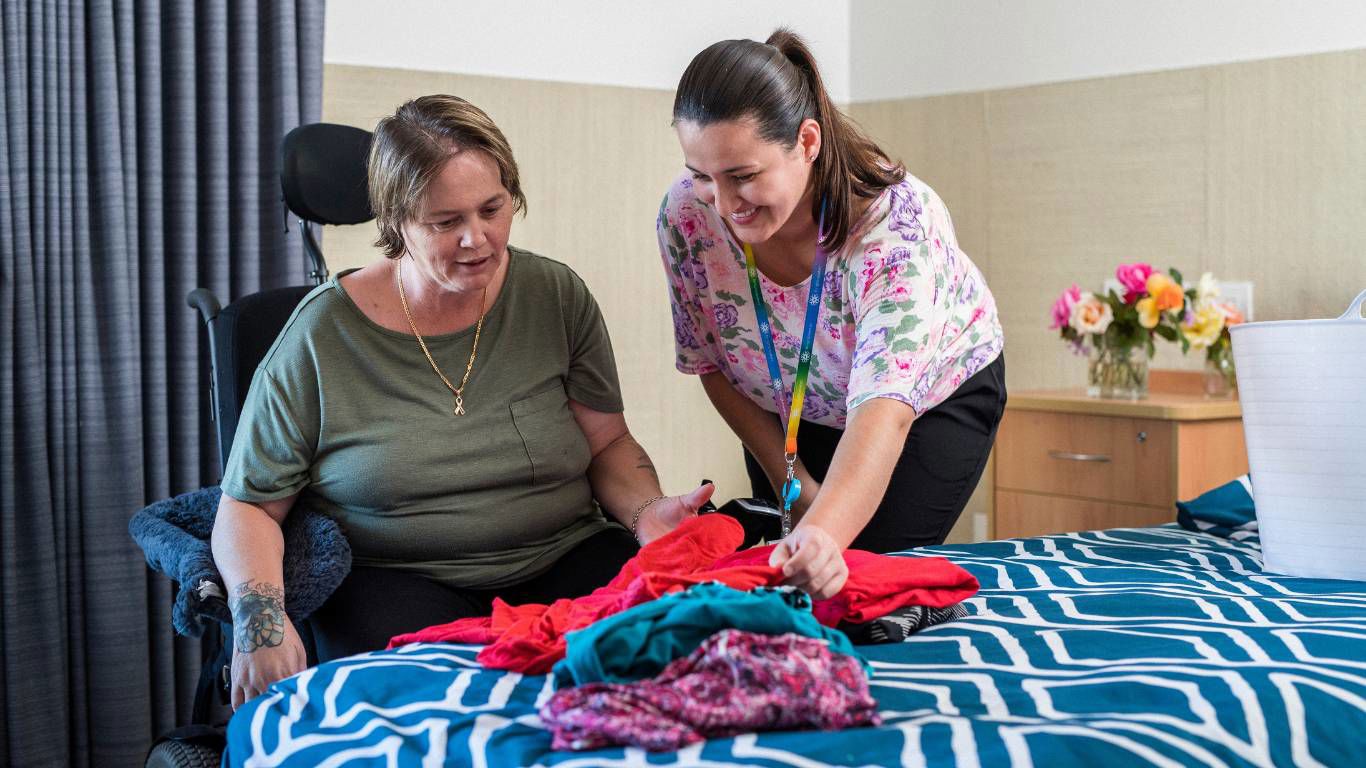
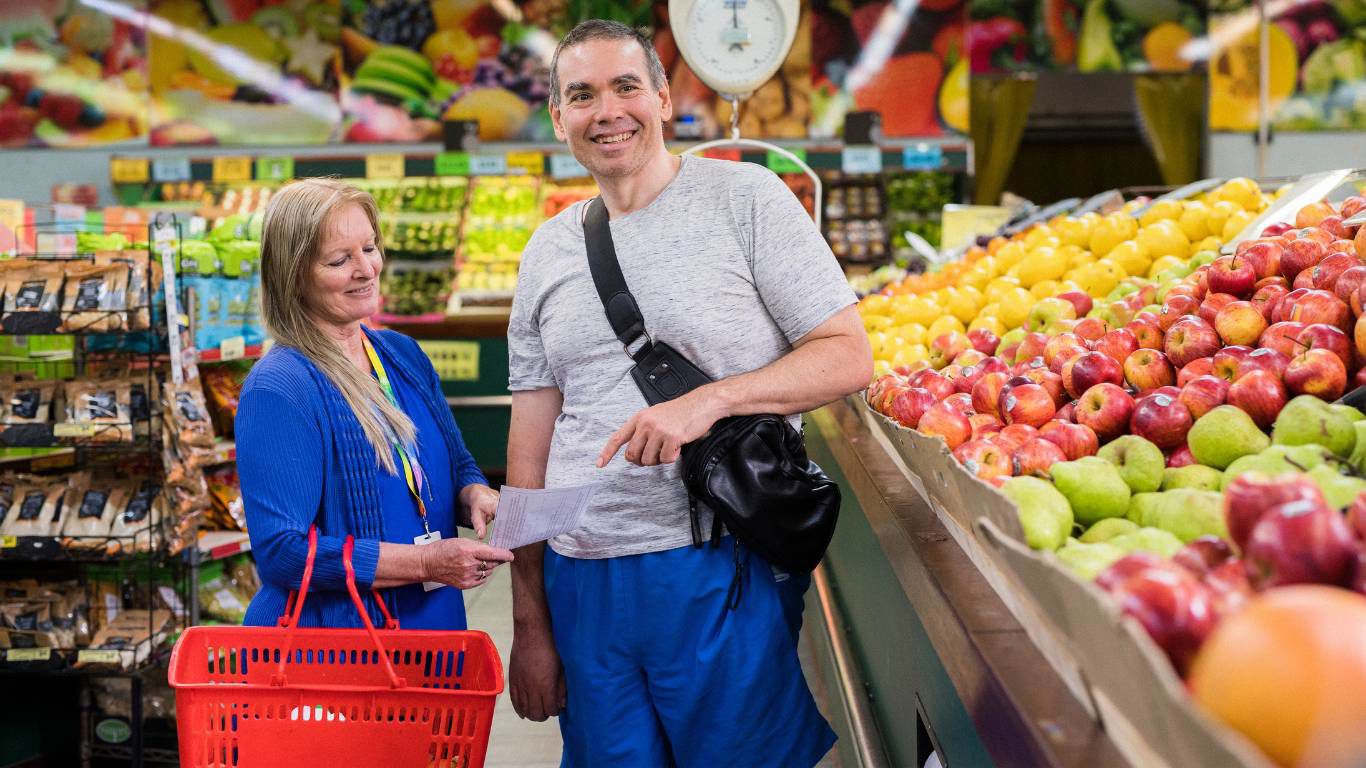
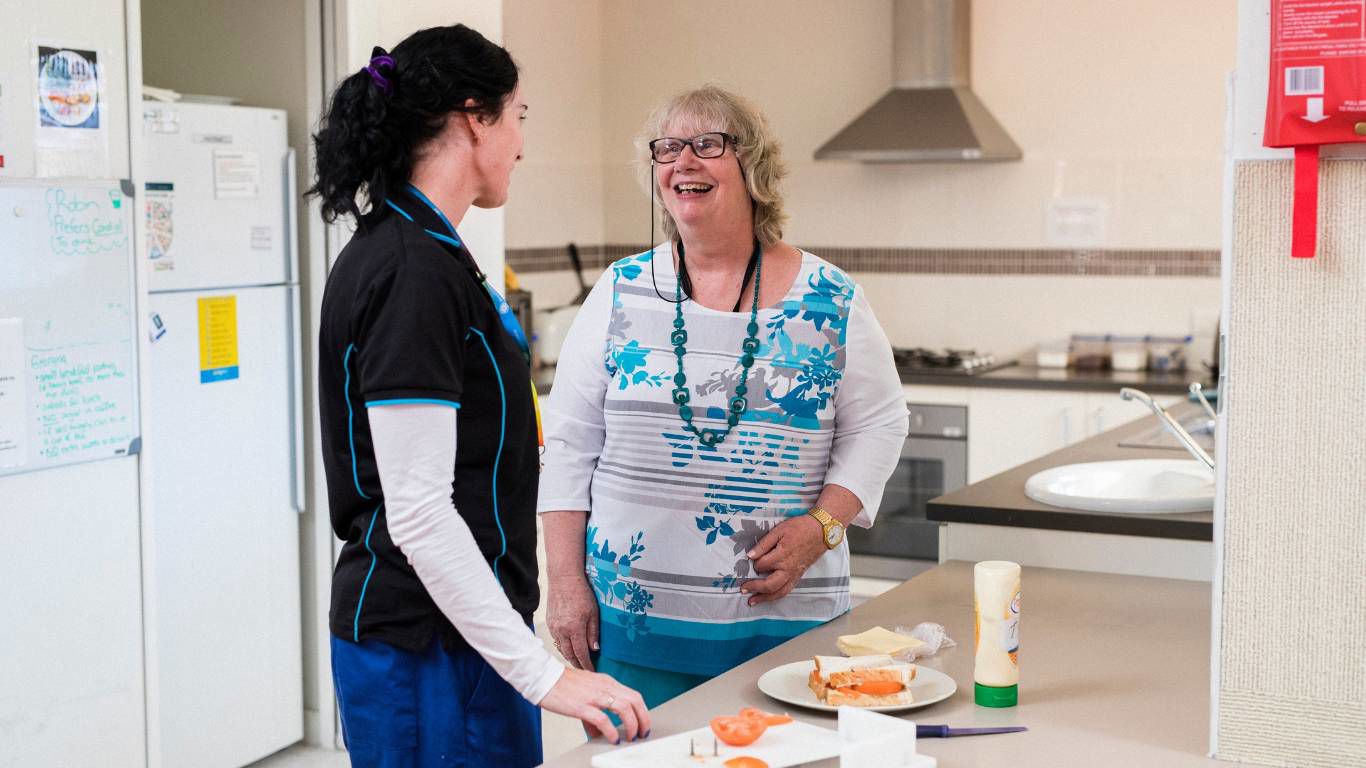
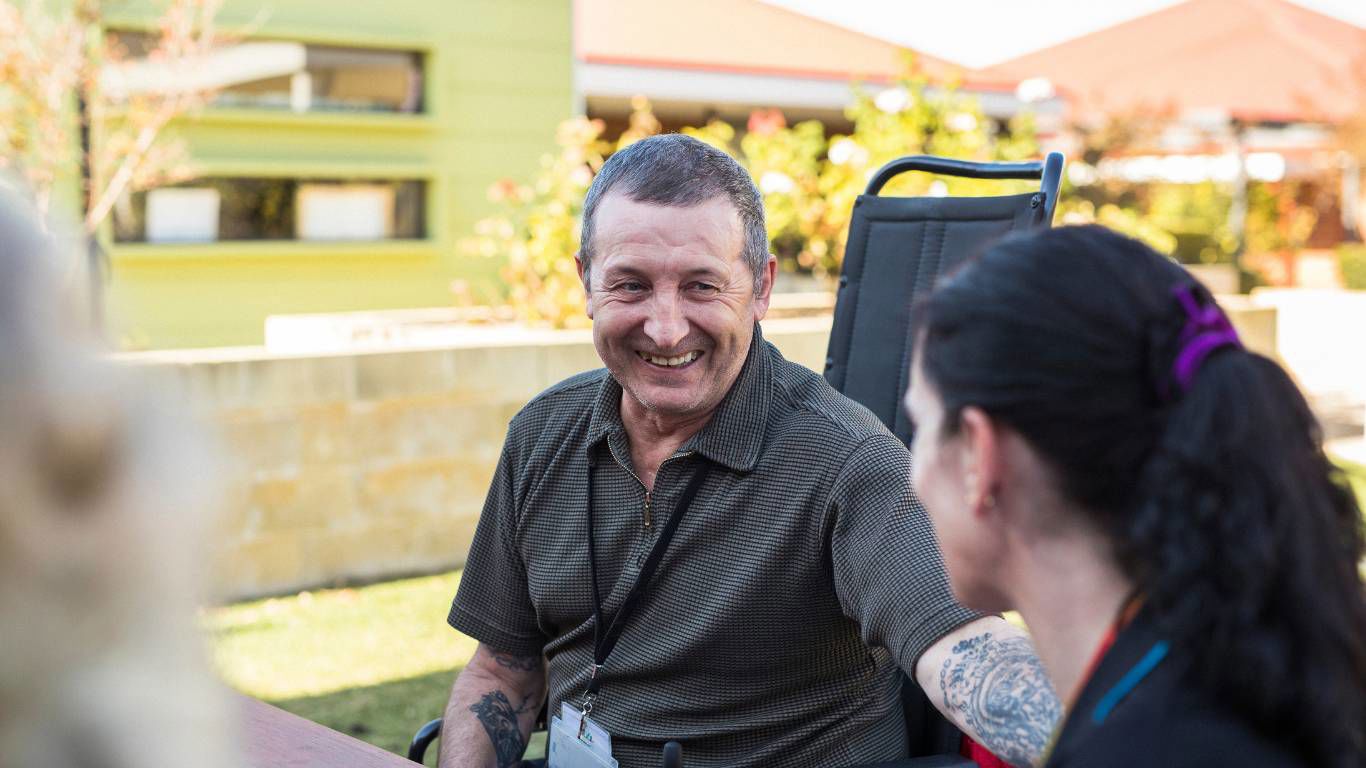
Staffing model:
- Enrolled nurses and support workers 24 hours, seven days per week
- Registered nurses from 7am to 6pm Monday through Friday (excluding public holidays)
- Allied health professionals 8.30am to 4.30pm Monday through Friday (excluding public holidays) who develop and implement client rehabilitation programs
- Includes occupational therapists, physiotherapists, speech pathologists, social workers, and clinical mental health nurses
- Counsellor/pastoral care
- Community Integration Coordinators who support clients with the NDIS process and other funding options, including transitioning to long-term accommodation.
Eligibility requirements for Brightwater Oats Street:
- Aged 18 to 65 and have an acquired brain injury
- Be medically and psychiatrically stable
- Has the desire and potential to build skills
- Eligible for funding or able to pay fees.
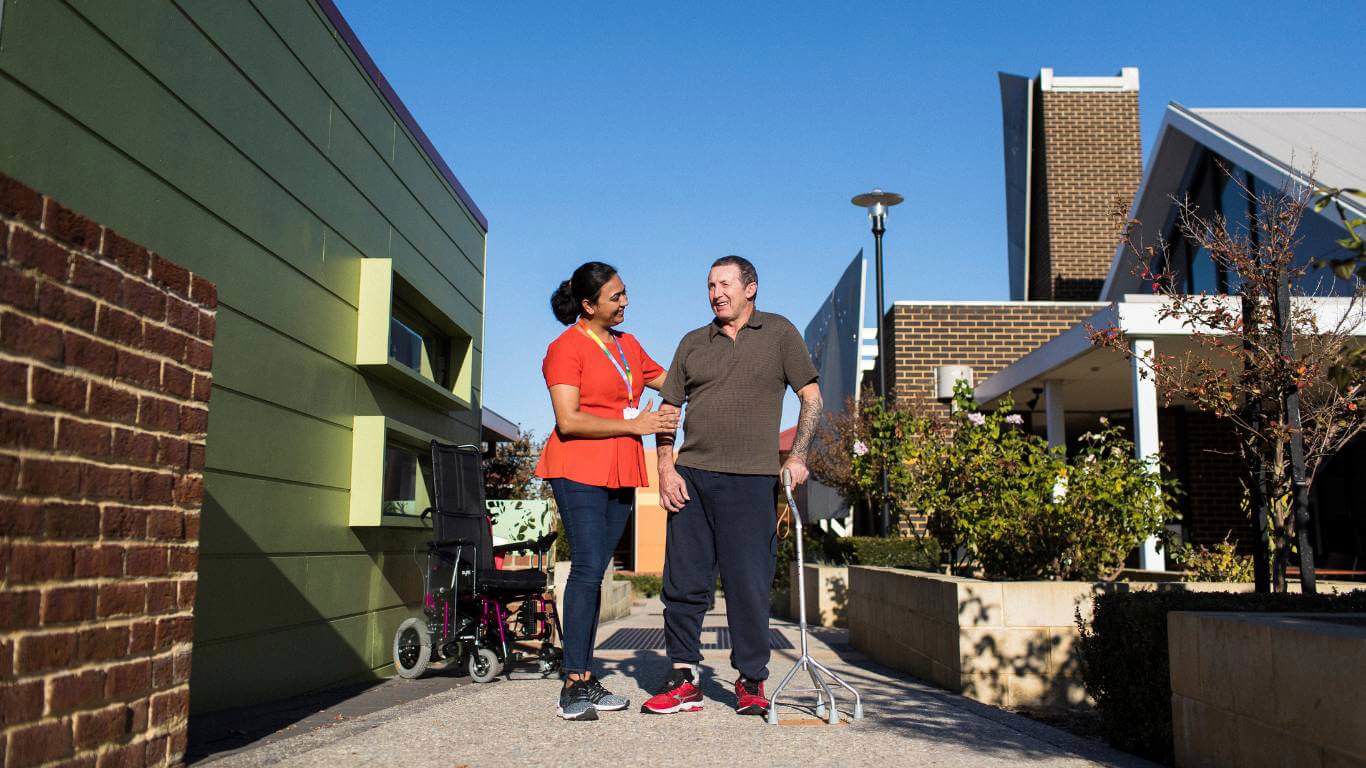
How to get started
Refer Online| Transitional Rehabilitation Program Referral Form | Transitional Rehabilitation Program Fee Schedule | Oats Street Rehabilitation for Life Book |
Backed by research
Brightwater is the only WA disability services provider with a dedicated Research Centre. We collaborate with national and international universities to find innovative solutions to improve the quality of the lives of people we care for, both in our residential accommodation and in their own home.
MyTBI
In partnership with the University of Western Australia and the Neurotrauma Research Program, Brightwater has created a road map of the expected recovery journey following a traumatic brain injury (TBI).
Discover more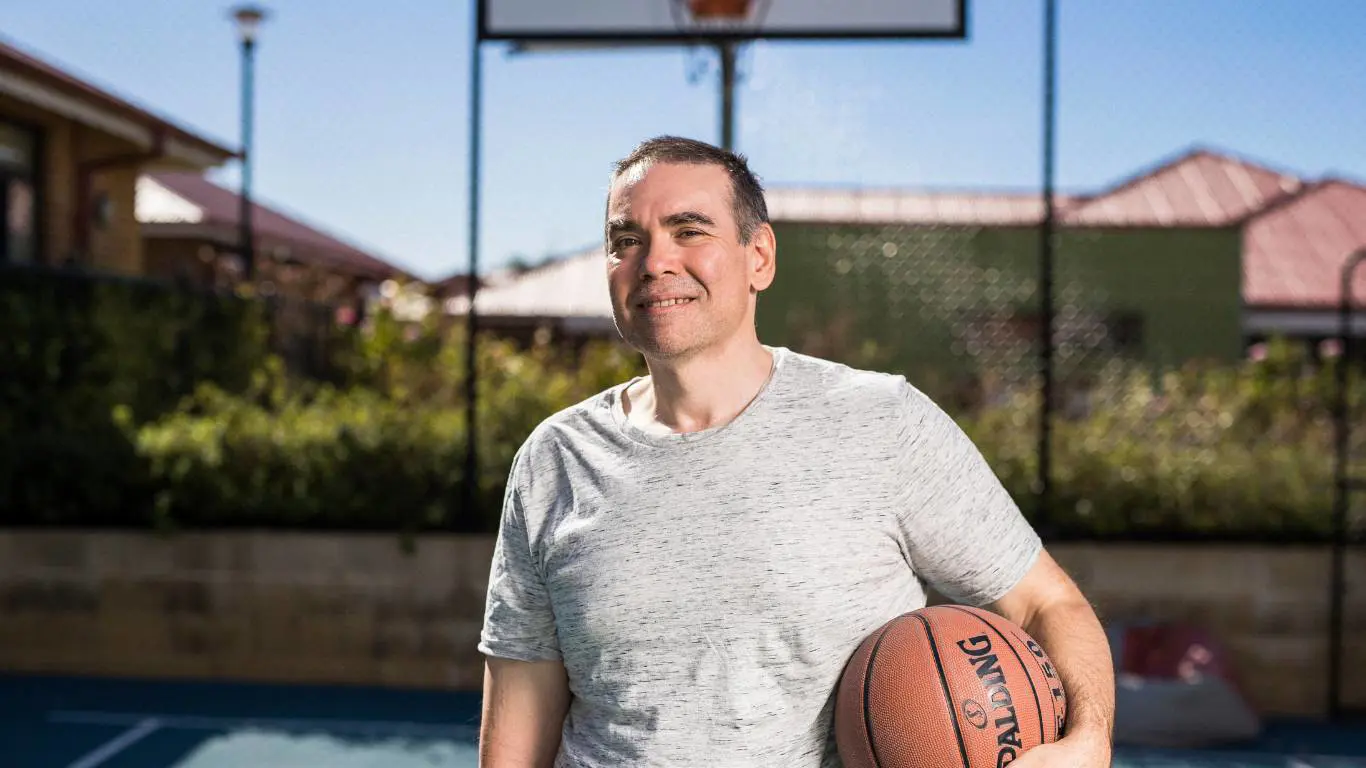
Factsheets
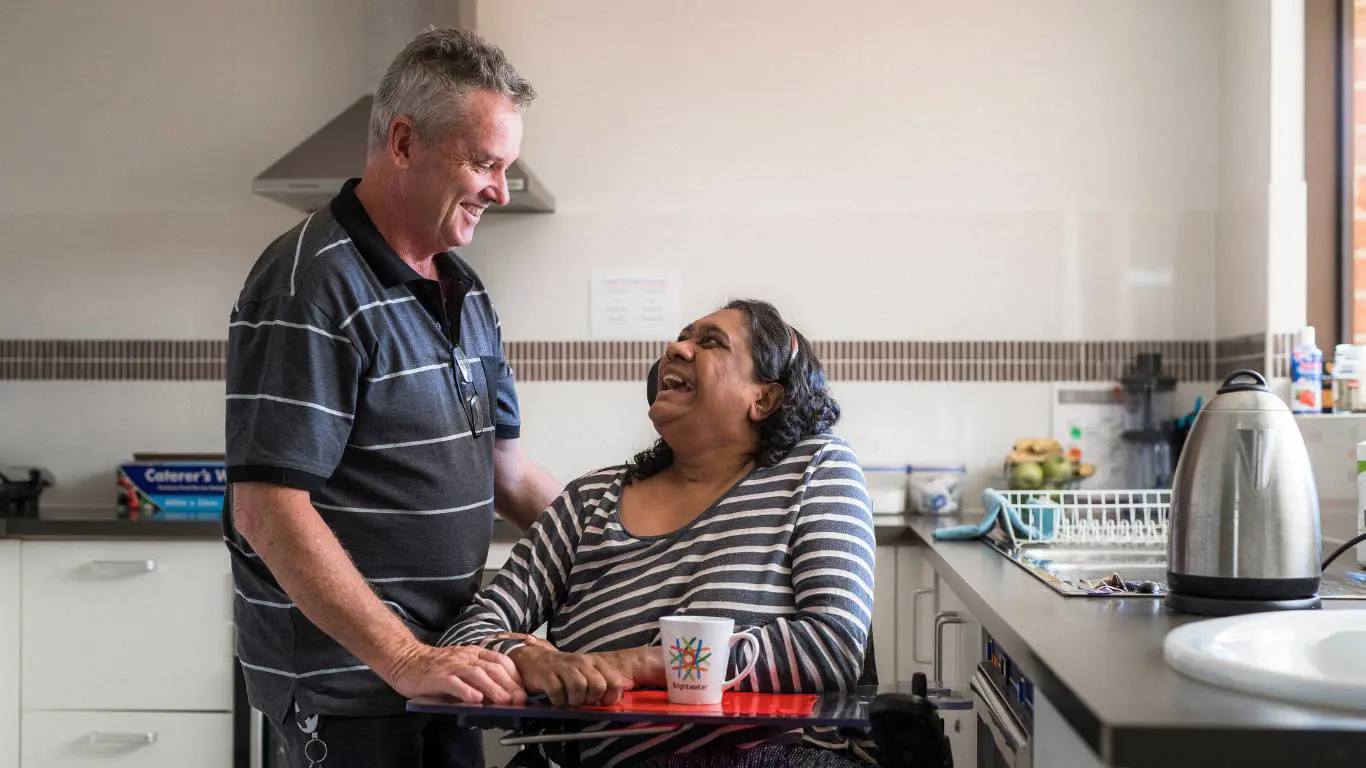
In partnership with the Uppsala University Hospital in Sweden, Brightwater has created fact sheets about living with an acquired brain injury.
Keeping Us In Mind
Keeping Us In Mind supports children, youth and young adults impacted by a family member with younger onset dementia or acquired brain injury. The study partnered with families and professionals to understand the impact of parental injury and illness on dependent children and young adults.
Discover more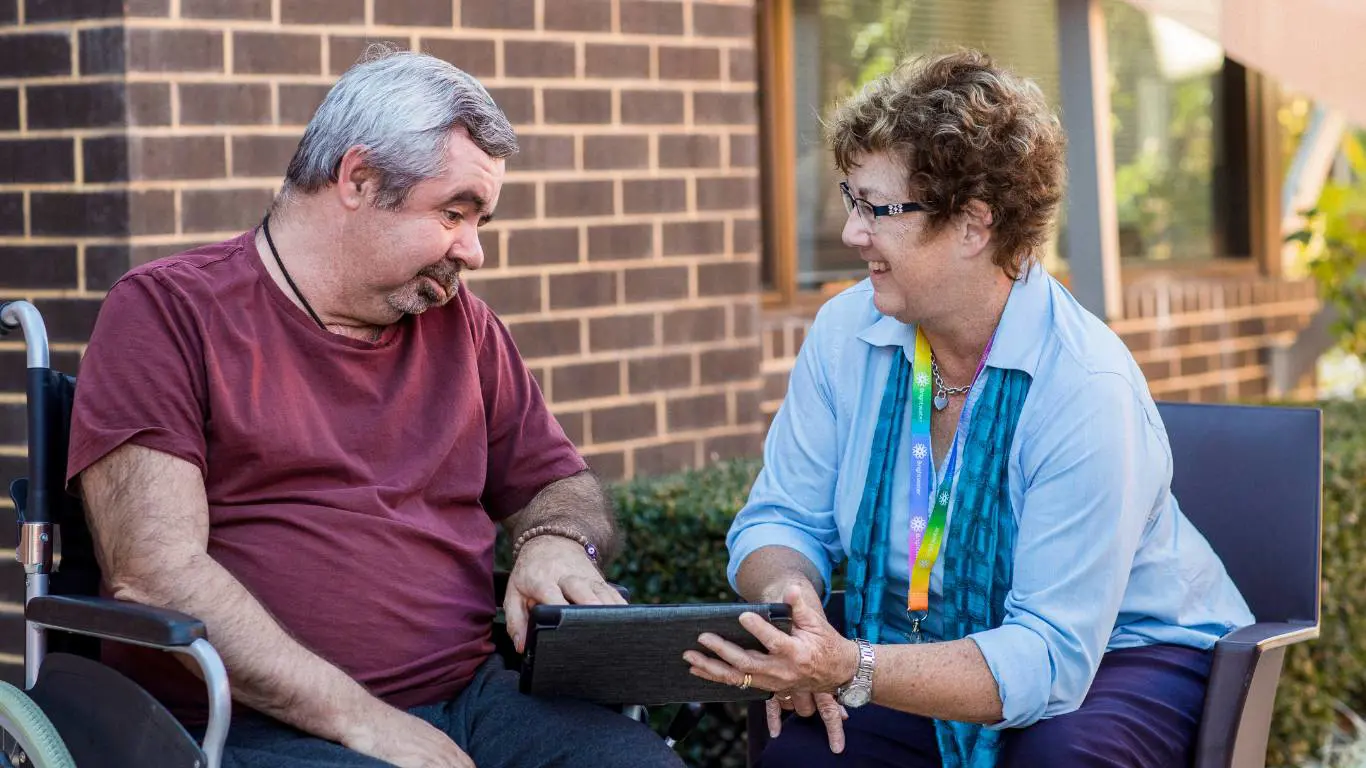
ABI=RESTaRT
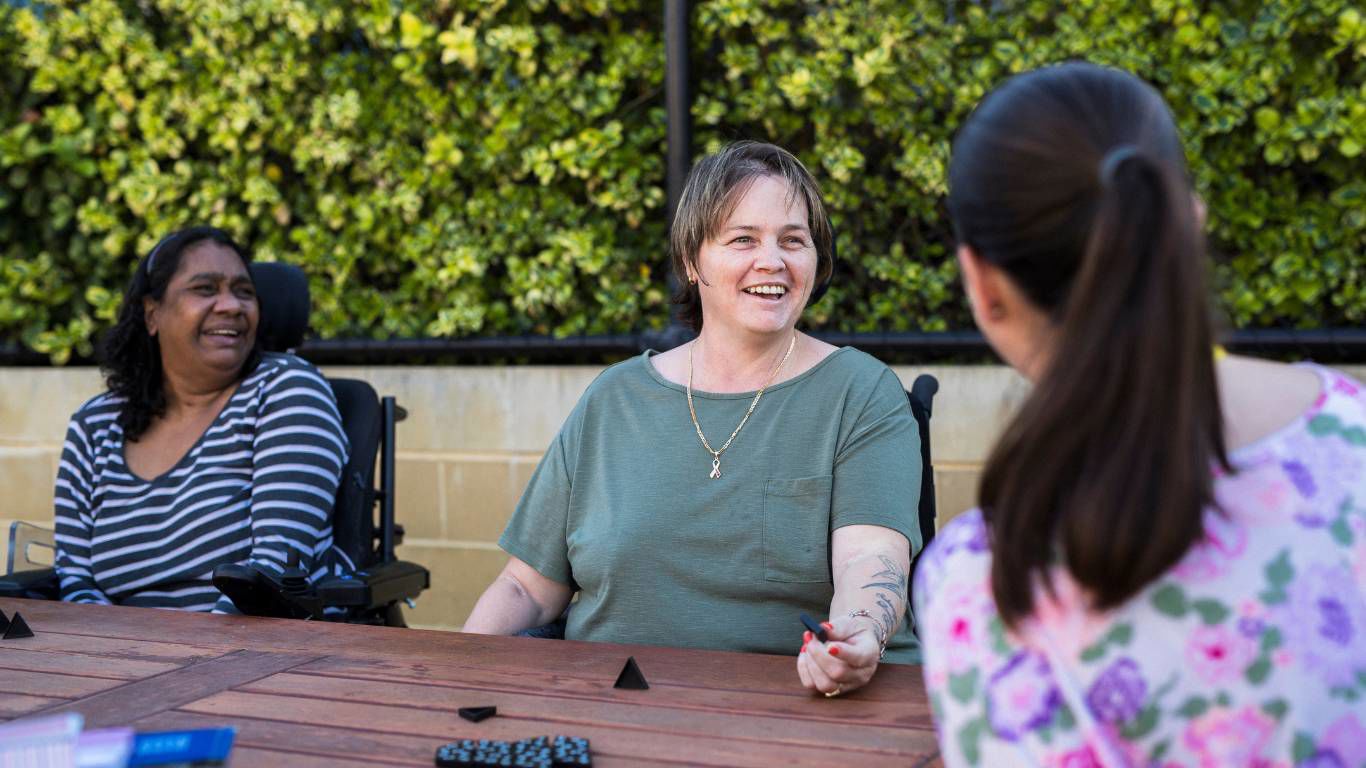
In partnership with University of Western Australia, Brightwater conducted a 29-year study called ABI=RESTaRT to better understand the needs of individuals with ABI and how to improve their outcomes.
Hear from some recent Oats Street graduates
A car crash eight years ago left Josh with an acquired brain injury, but with Brightwater's Oats Street rehabilitation centre he was able to live independently once again.
Oats Street made sure Josh was strong enough to regain independence because it was one thing that Josh didn’t want to live without.
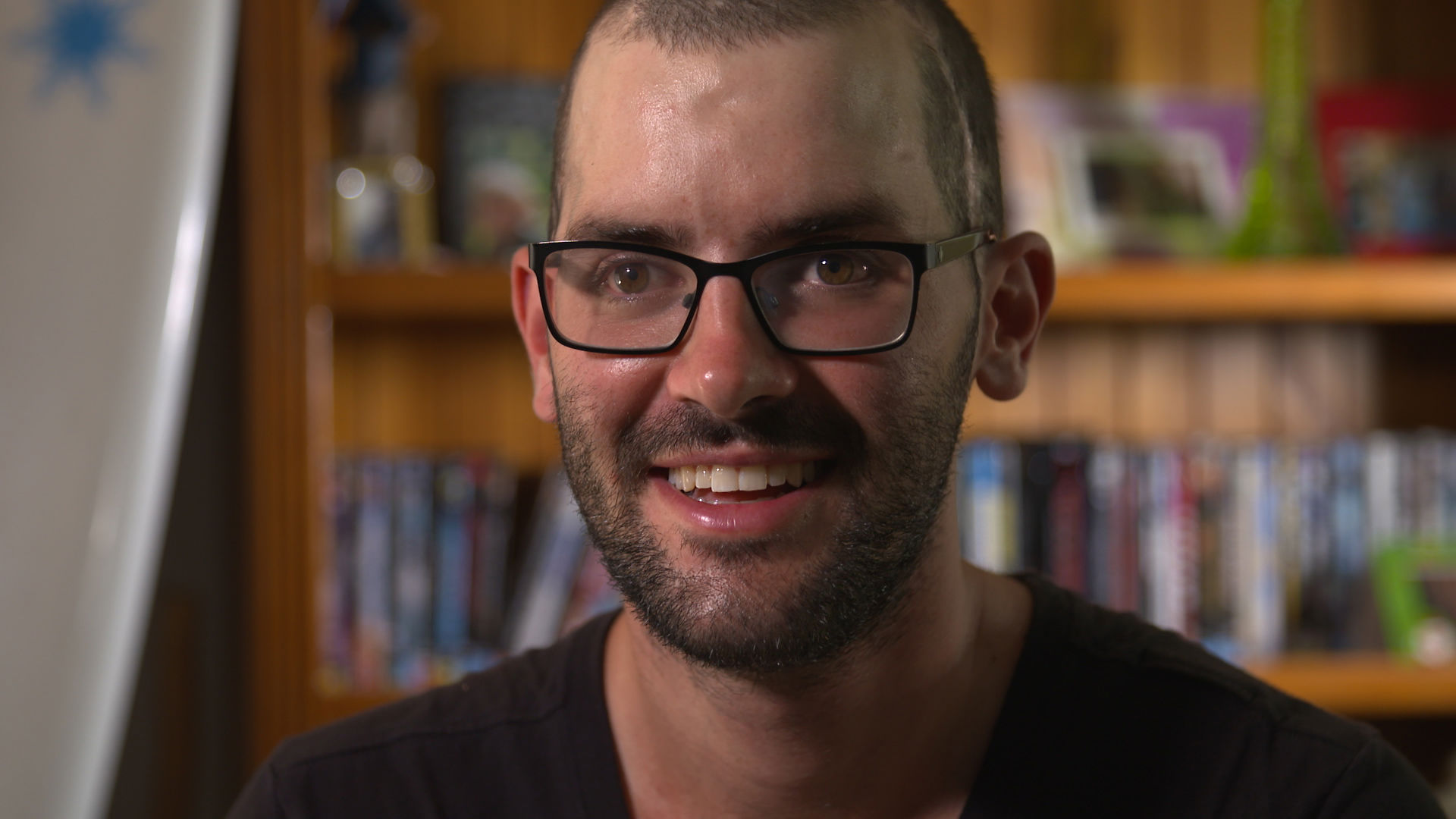
Janet’s dreams of an active retirement were shattered when a hiking holiday in Tasmania went horribly wrong.
A speeding vehicle smashed in to the car her husband was driving. The crash left Janet in a coma, with a traumatic brain injury and acute joint pain. After a six month stint in hospital, Janet was left feeling very frustrated.
She moved to Oats Street rehabilitation centre where the community-based setting suited Janet’s outgoing personality, with her family noting a change in her almost immediately.
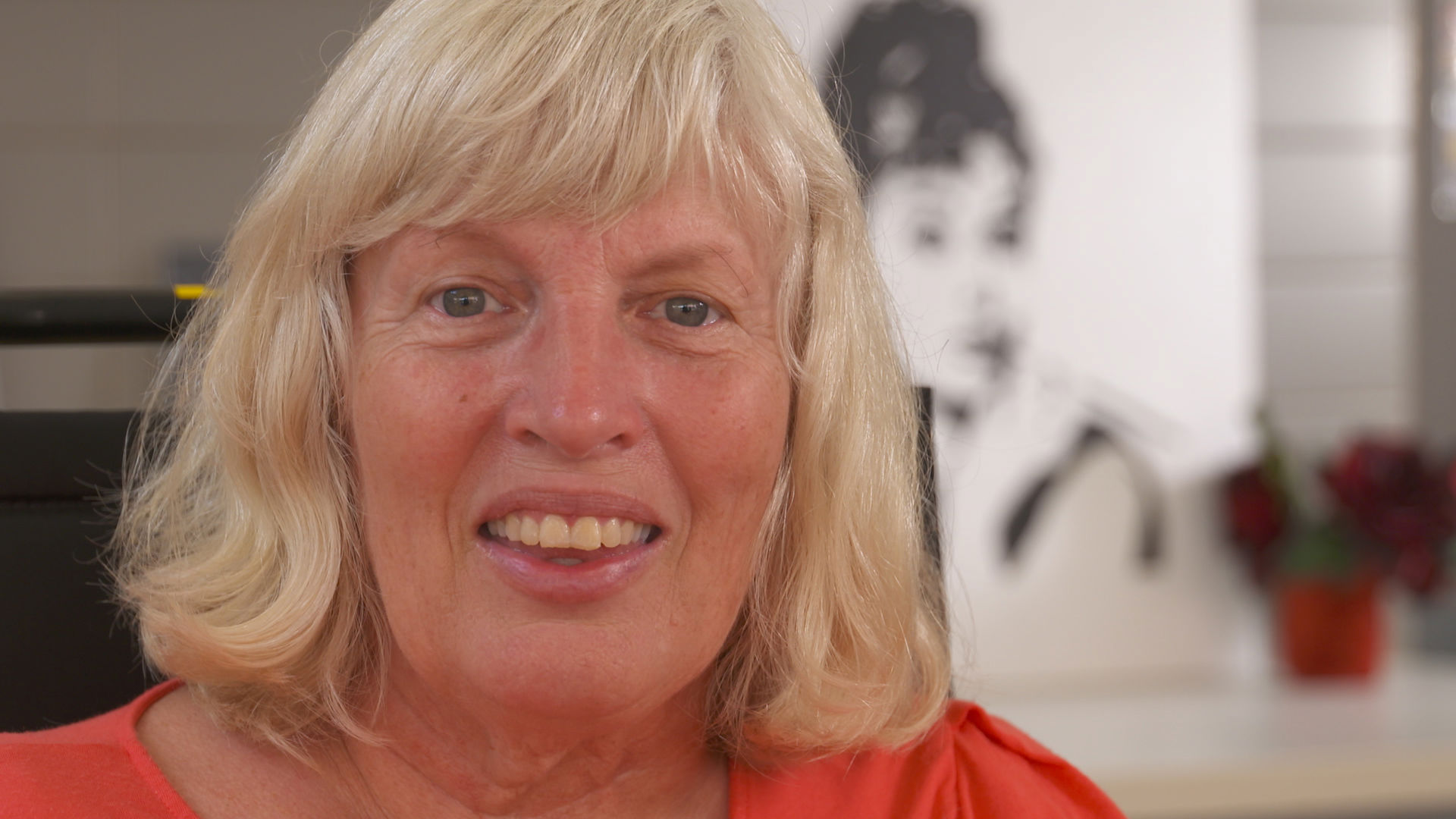
Fred remembers a car turning across in front of him while riding his motor cycle, giving him no chance to prevent the collision.
Fred has always loved to paint since he was a child, and with Brightwater's rehabilitation program, he was able to focus on the everyday activities he enjoys the most. It was no easy feat, but it made a world of difference, providing the confidence to get back into the world independently, once again.
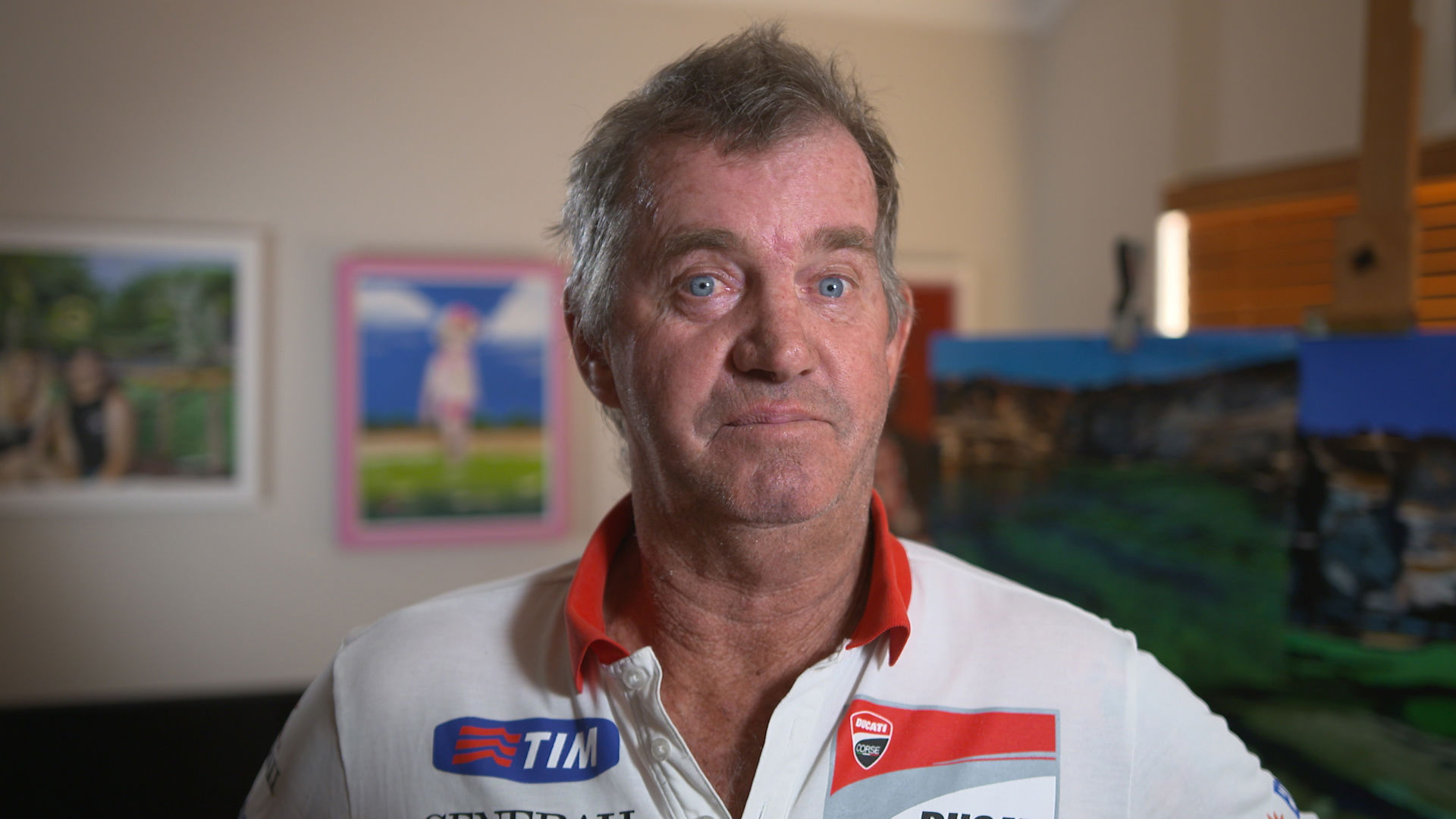
An overdose on drugs caused Matt to suffer from a stroke, with the effects being more than just physical.
A young outgoing man in his 20s, Matthew’s confidence took a nose dive when he had to learn how to walk, talk and complete everyday tasks again. Matt had significant damage to his short-term memory, but his time at Oats Street enabled him to slowly re-gain the skills he once had and live a more independent life.
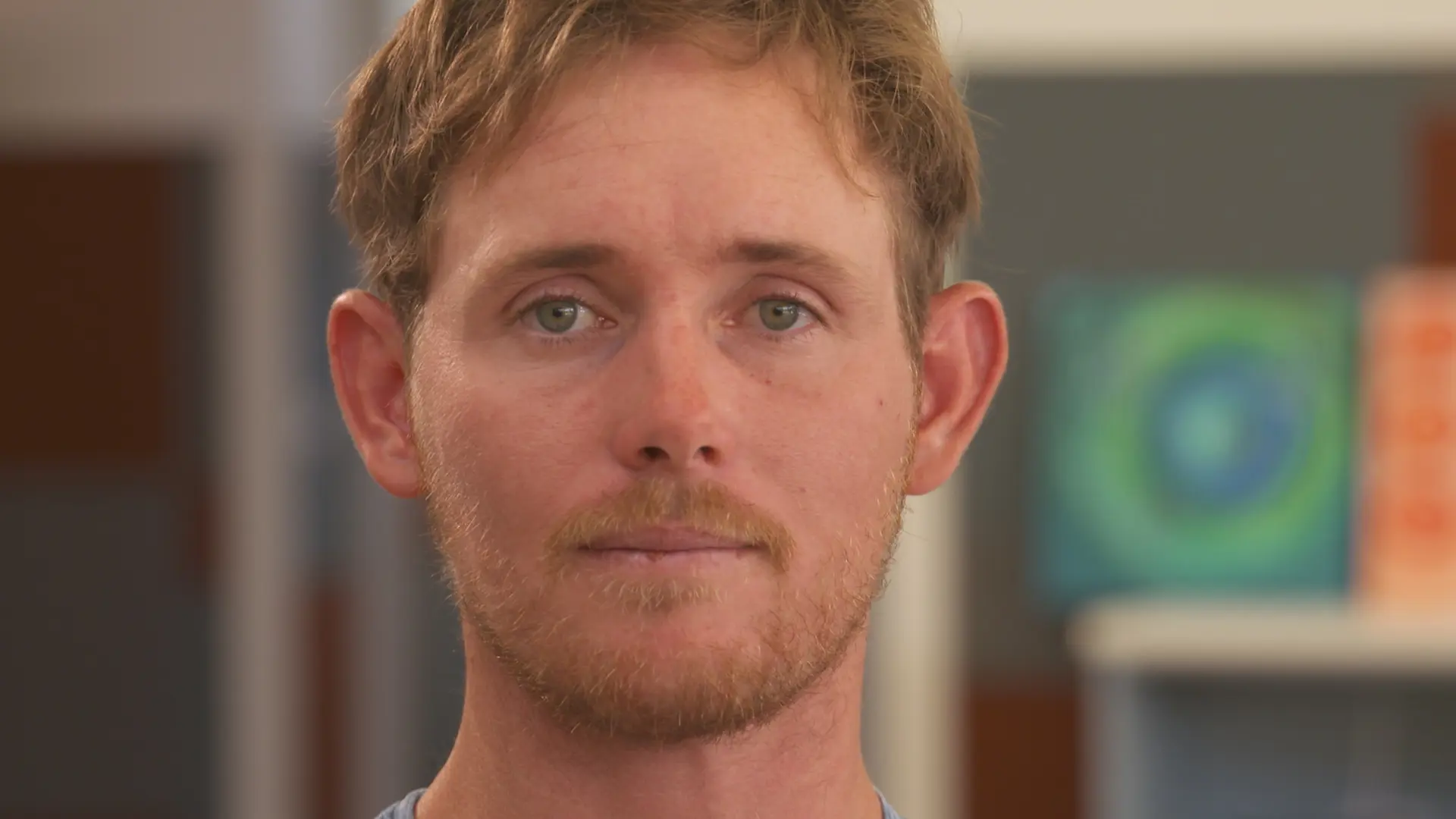
Have a question about Oats Street? We're all ears!
What is the Transitional Rehabilitation Program and what can I expect?
The Transitional Rehabilitation Program (TRP) at Oats Street supports people with an acquired brain injury (ABI) to rebuild everyday skills and regain independence in a safe, home-like setting.
The program focuses on what matters to you, whether that’s getting around safely, cooking, managing tasks at home, or reconnecting with your community. Everyone works towards personalised goals, with support from our experienced team.
Most people stay in the program for 12 to 24 months, depending on their needs, progress and goals.
Who can join the program?
Adults aged 18 to 65 who have sustained a brain injury and are able to contribute to board and lodging costs, as well as cover their own pharmacy expenses.
What is it like to live there?
It's a supportive and friendly place! You'll live in shared houses or independent units, with plenty of space to relax, exercise and connect with others. There's a gym, basketball court, education centre and gardens to enjoy.
Who is there to support me?
You’ll have a solid team behind you, some of which include:
- Enrolled nurses and support workers available 24/7
- Registered nurses during the day, Mon-Fri
- Allied health experts like occupational therapists, physiotherapists, speech pathologists, social workers and clinical mental health nurses
- A counsellor/pastoral care team for emotional and spiritual support
- Community Integration Coordinators to help with your NDIS plan and finding long-term accommodation.
Everyone works together to help you kick goals and make the most of your time here!
Can family and friends visit me?
Of course! We love having visitors and encourage your family and friends to be part of your journey.
What are the costs?
The rehabilitation part of the program is funded by the WA Health Department. They also help with board and lodging costs, but you’ll need to contribute a portion yourself and pay for any pharmacy expenses. For full details, check out our TRP Fee Schedule.
How do I apply?
If you’re currently in hospital, your social worker can help with the referral. If not, you can fill out a referral form and we’ll guide you through the next steps.
What happens after the program?
Towards the end of the program, we’ll help you plan what comes next based on your goals and support needs. Some people move into one of Brightwater’s Supported Independent Living (SIL) homes, while others return to their own home or explore other suitable accommodation options.
If you don’t already have NDIS funding, we can also help you apply as part of your discharge planning.
